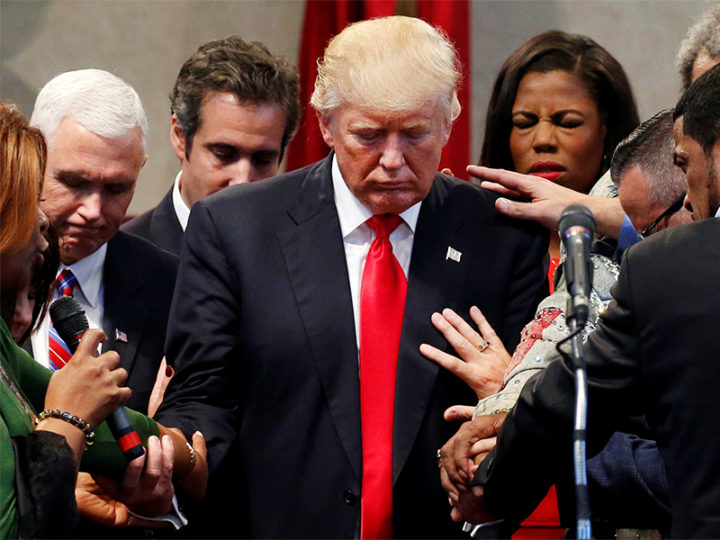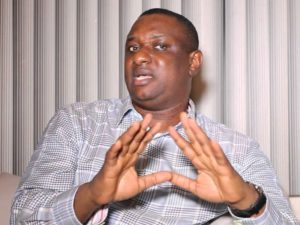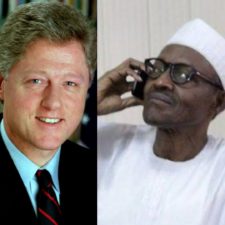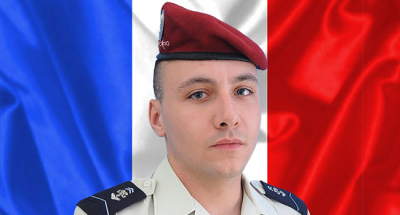*As US President exonerated self as responsible for killing of Muslims
When President Donald Trump made a rare appearance at church on Sunday, he heard a pointed message from the minister: call out hate speech whenever you hear it because it’s a “sin against the Gospel.”
The entreaty to rebut the type of language and mentality that spurred a gunman in New Zealand to open fire on mosques last week came from Rev. W. Bruce McPherson, who delivered Sunday’s sermon at historic St. John’s Episcopal Church, situated just across a small park from the White House.
Trump attended the 11 a.m. service along with his wife Melania. Not a regular churchgoer, Trump has occasionally attended services as president, including on Christmas Eve and Easter.
Seated in the designated President’s pew halfway down the church aisle, the President listened as McPherson lamented Friday’s terror spree in New Zealand — “one more gratuitous attack on innocent people at worship”– and called on congregants to muster enough courage to denounce the type of hate speech that the attack’s perpetrator espoused.
“What can we do? Well perhaps we’re called whenever we overhear or oversee hateful slurs against other people, perhaps we need the holy courage to call them out, because that’s just not us,” McPherson said in 15-minute sermon, which he also used to highlight aspects of Islam he said sparked “holy envy” — such as an egalitarian prayer line and the five-times daily prayer ritual.
McPherson acknowledged “it’s not easy to confront someone” for uttering hateful words, and conceded he was often “the first one to just let it pass, because I’m a peacemaker.”
“Maybe we shouldn’t be so ready to do that,” he added. “We don’t want to stop, to put an end to hateful rhetoric, because it’s a nice thing to do or because it offends our sensibilities or because it’s not in accordance with the First Amendment. We need to stop that stuff because it’s a sin against the Gospel. It takes courage I know. But it’s up to us. Courage is contagious. And acting courageously especially in light of some kind of speech like that catches on and spreads.”
His message came as Trump himself was under pressure to more forcefully denounce white nationalism and hate speech, particularly after the New Zealand shooter alluded to Trump as “a symbol of renewed white identity.”
The President said Friday he hadn’t read the manifesto and denied there has been a rise in white nationalism around the globe.
“I think it’s a small group of people that have very, very serious problems, I guess,” Trump said in the Oval Office after being questioned about whether he views white nationalism as growing.
Others in his administration have forcefully denied the President is fostering extremist views, though he’s been criticized in the past for failing to denounce white nationalism, including in the wake of racist violence in Charlottesville, Virginia, in 2017.
“The President is not a white supremacist. I’m not sure how many times we have to say that,” acting chief of staff Mick Mulvaney said on Fox News Sunday.
But Mulvaney repeatedly declined to answer why the President wouldn’t hypothetically give a speech denouncing white supremacy.
“Maybe we do that, maybe we don’t,” Mulvaney eventually said.
Seated inside St. John’s on Sunday — where every president since James Madison has worshipped — Trump heard a counter-argument: that calling out hate speech regularly and loudly was every person’s responsibility.
“We do it because that talk is downright sinful,” McPherson said. “Jesus said it’s not what a man puts in his mouth that defiles, it’s what comes out of a person’s mouth that defiles for it comes from within, from the heart. And that is where evil comes from. And if we can — each individually in our own small ways — stand up against hate speech, that it can perhaps be said about us, blessed is the one, as Jesus said, blessed is the one who comes in the name of the Lord.”
If the President was moved by the message, he did not show it. He returned to the White House on Sunday afternoon to resume angrily tweeting about all manner of topics, including retweets about his call for Fox News to restore host Jeanine Pirro’s program after she was suspended for making anti-Islam comments.
Nowhere in his tweet stream did the President mention the New Zealand attacks or the ideology that appeared to inspire them.
On Monday, he did mention the shooting, but only in defense of himself.
“The Fake News Media is working overtime to blame me for the horrible attack in New Zealand,” he wrote. “They will have to work very hard to prove that one. So Ridiculous!”




